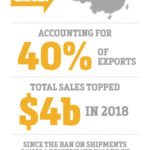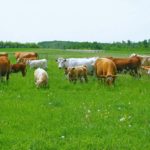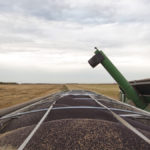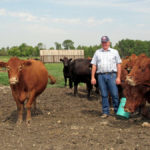
News

Is Canadian canola a victim of China’s desire to be more food self-sufficient?
A recently published paper says the disruption in canola trade with China has more to do with its push for food self-sufficiency than politics. The Canadian canola industry disagrees

Past China canola dispute resolved, this one will be too: Innes
Canada has resolved past disputes over canola exports to China and Canada’s canola industry expects the current one will be too

Record shows China prepared to use non-tariff trade barriers
A letter issued by China’s Ministry of Agriculture documents China’s plan to use non-tariff trade barriers to bolster domestic rapeseed production

A thorn in the side of oat growers
Common buckthorn is a haven for crown rust spores over the winter and an easy source of infection if the farmer opts for a susceptible oat variety

Government support for Canadian farms well below global average
OECD remains critical of Canada’s supply management system

Manitoba Forage and Grassland Association backs up regenerative ag
The movement is now an official cause for MFGA

JoAnne Buth: a life in agriculture
Cigi’s newly retired CEO didn’t have a plan, but walked through new doors as they opened

Buth unsurprised by China’s Canadian canola ban
As canola council president she helped keep the border open in 2009 but suspected China would eventually try to ‘control things’

Work to begin on Winnipeg food strategy
Food Matters Manitoba has been contracted to begin work on the food plan

Rainfall prevents drought disaster
Now it’s up to timely rains to finish the job this season


